
Voices from Abortion Ban States
Plaintiffs in Center cases speak out about how they were denied essential abortion care—even though their health, lives and future fertility were at risk.
Since the U.S. Supreme Court overturned Roe v. Wade and eliminated the constitutional right to abortion in 2022, 14 states have banned abortion. Even patients facing severe and dangerous pregnancy complications are being denied medically necessary abortion care in those states—and are forced to stay pregnant against their will or travel hundreds of miles out of state to get the care they need.
Below, hear firsthand from Center plaintiffs about their real-life experiences in states banning abortion—and learn about the lawsuits brought on their behalf.
After learning her pregnancy was diagnosed with anencephaly and would not survive, Samantha Casiano was forced to remain pregnant since she lacked the resources to travel to another state for abortion care.
Samantha’s daughter died four hours after birth.
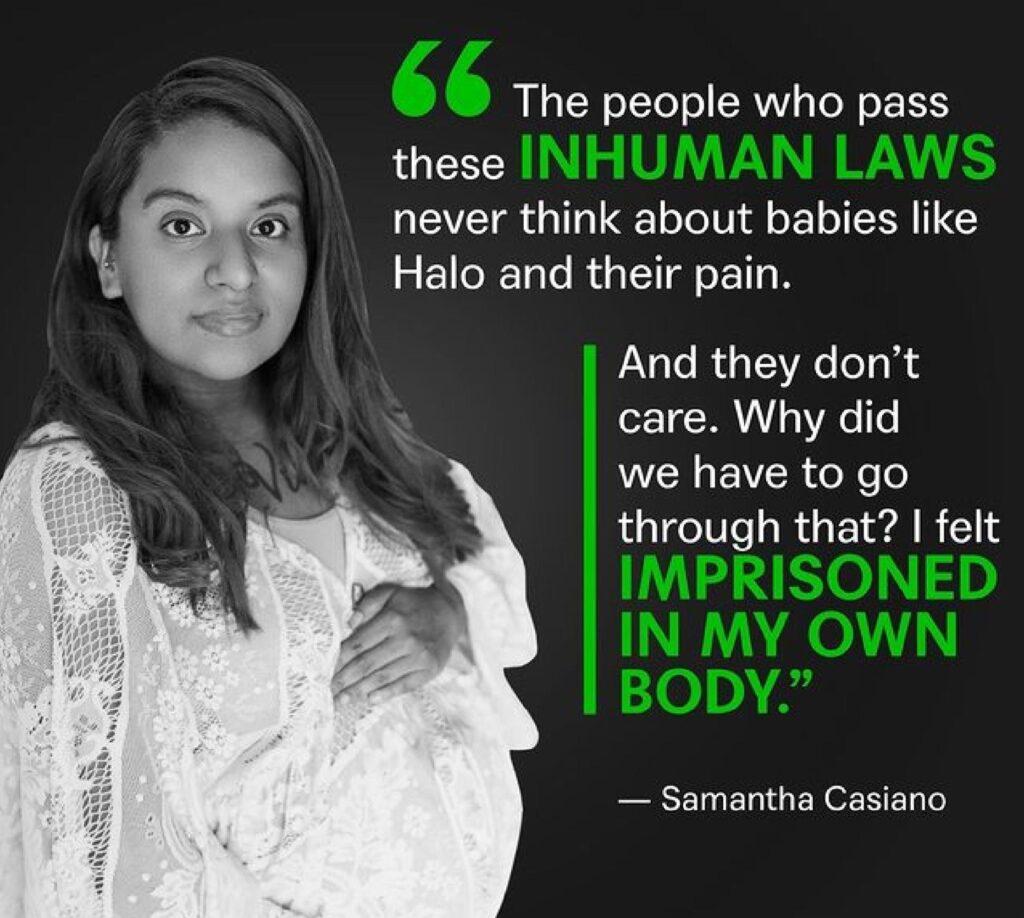
Anna Zargarian’s water broke prematurely, leaving her fetus with no chance of survival. Although doctors recommended that Anna get an abortion since she was at risk of hemorrhaging and developing a sepsis infection, they were unable to provide her that care in Texas.
“[My doctors] said they wanted to help, but couldn’t under Texas law. Where else in medicine do we do nothing and just wait and see how sick a patient becomes before acting?”
—Anna Zargarian
After learning her fetus had a fatal diagnosis, Nicole Blackmon was told by doctors that because of her serious, chronic health conditions, she was at high risk of having a stroke during labor and delivery. Without resources to leave Tennessee to obtain abortion care, she was forced to remain pregnant.
At 31 weeks, Nicole gave birth to a stillborn baby.
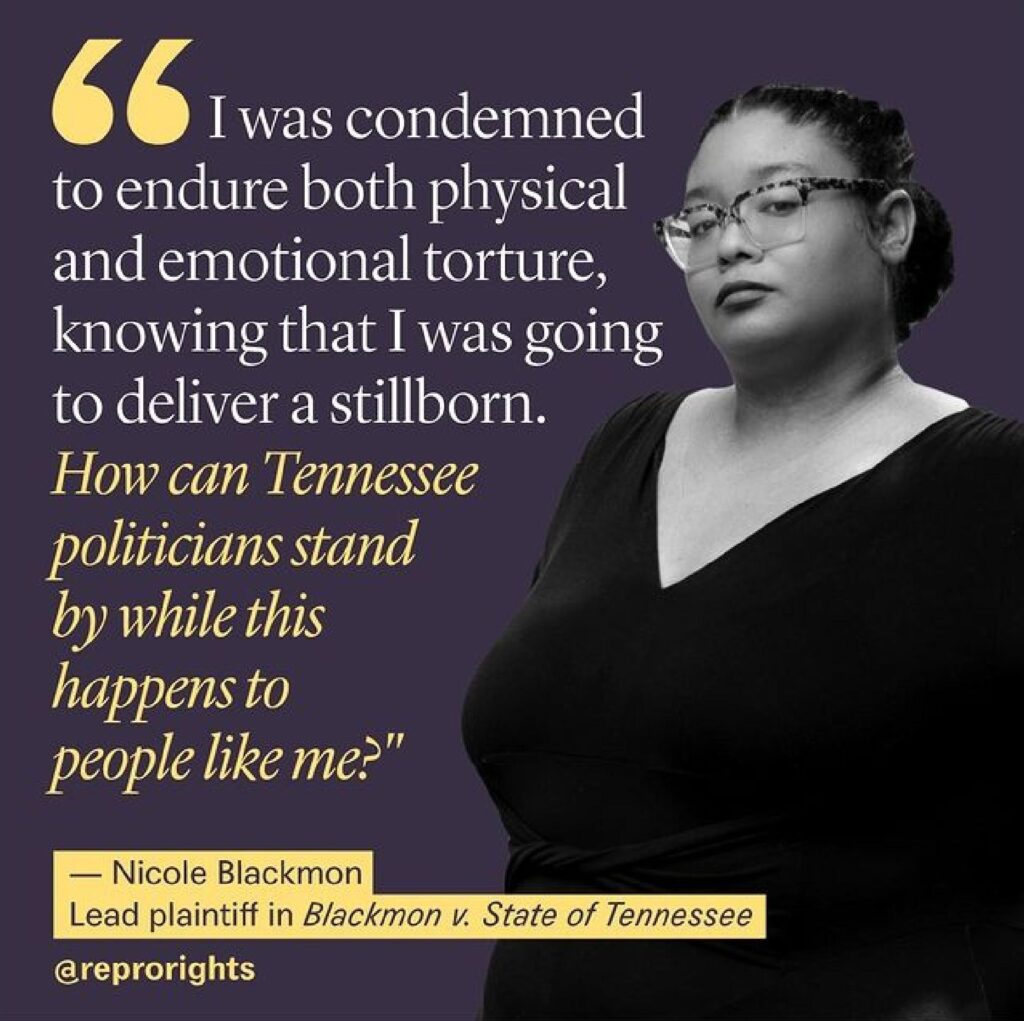
When Dr. Austin Dennard was 11 weeks pregnant, she found out that her baby had anencephaly—a condition not compatible with survival. In an earlier pregnancy—before Texas banned abortion—she had been able to receive abortion care in her home community after receiving a fatal fetal diagnosis.
For this pregnancy, she did not have that option.
“I have seen abortions save lives. . . Even planned, prayed-for pregnancies can end in abortion.”
—Dr. Austin Dennard
Kiersten Hogan went to the hospital when her water broke prematurely. Although her fetus had no chance of survival, Kiersten was forced to stay in the hospital against her will and was warned by staff that leaving the hospital could be used as evidence she was trying to kill her baby.
Days later, Kiersten’s son was delivered stillborn.
Amanda Zurawski’s water broke prematurely, leaving her fetus with no chance of survival. After being denied abortion care, she developed a life-threatening sepsis infection.
The infection caused one of her fallopian tubes to permanently close, compromising her ability to have children in the future.
Elizabeth Weller’s water broke prematurely, leaving her fetus with no chance of survival. Continuing her pregnancy meant risking her future fertility, health and life, but instead of receiving abortion care, she was sent home to wait for her baby to die inside her.
Elizabeth developed a life-threatening infection of her placenta and amniotic fluid.
“There is no statement of pro-life in this state when you send me home to wait for my baby to die inside me. . . I have to gamble my uterus, gamble my life and gamble any future possibility of becoming pregnant. That’s not pro-life. In a sense, it’s almost pro-torture.”
—Elizabeth Weller
Kylie Beaton’s fetus was diagnosed with a condition in which the brain does not develop normally. She had no choice but to carry the nonviable pregnancy to term, and needed emergency caesarian surgery since her baby’s head was abnormally large.
Her son died after four days.
Kate Cox sought an emergency abortion to avoid dangerous risks to her health, life and future fertility after learning her fetus had Trisomy 18—a condition causing multiple structural abnormalities—and had no chance of survival.
The Texas Supreme Court denied her request.
Case: Cox v. Texas
“I wanted to be here, close to home. I mean, it’s the hardest thing I’ve been through. I wanted to come home, cry on my own pillow, hold my babies, be near my doctors. . . That’s really what I thought about the most, going into this.”
—Kate Cox
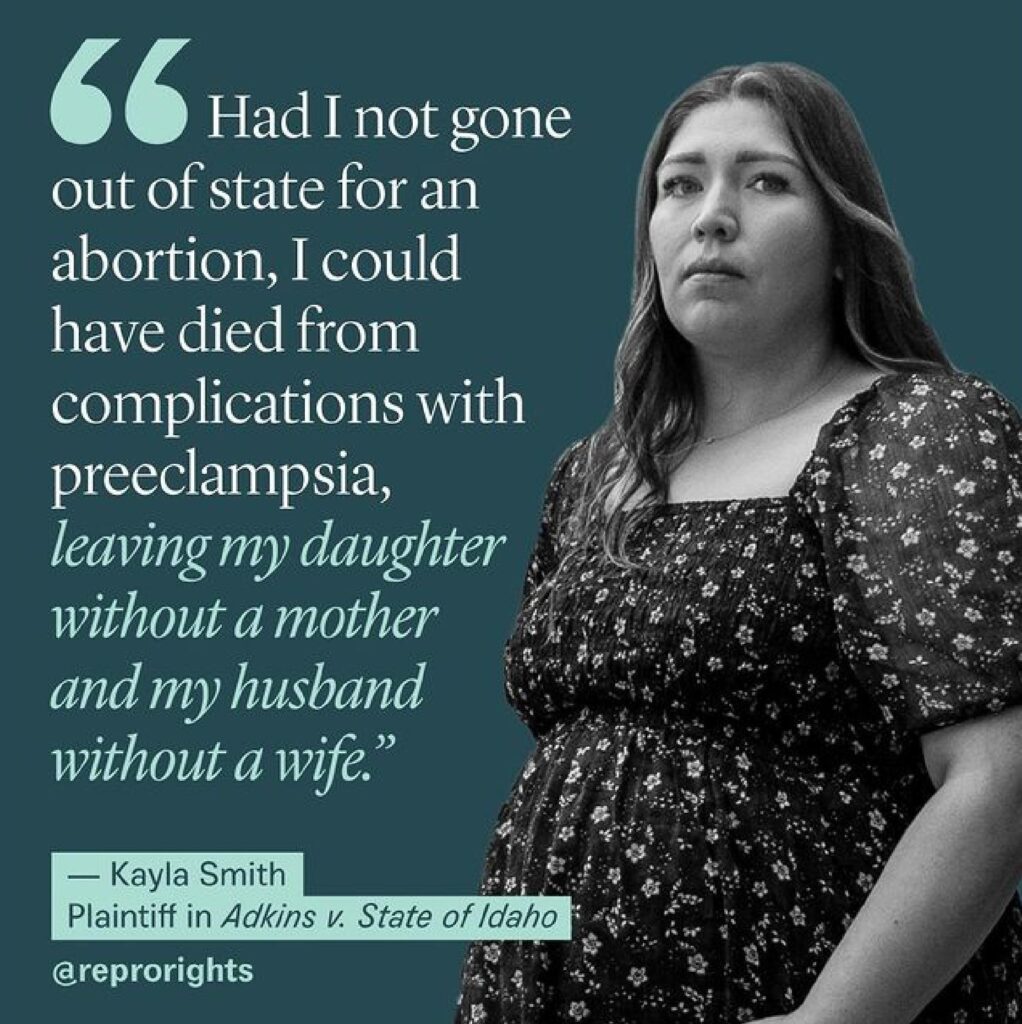
Kayla Smith learned after an ultrasound that her fetus had a serious and inoperable congenital heart condition and was unlikely to survive past birth. Although Kayla had a heightened risk of developing preeclampsia and her doctors recommended she get an abortion, doctors were unable to provide that care in Idaho.
Kayla and her family have since moved to Washington.
Case: Adkins v. State of Idaho
Read more.
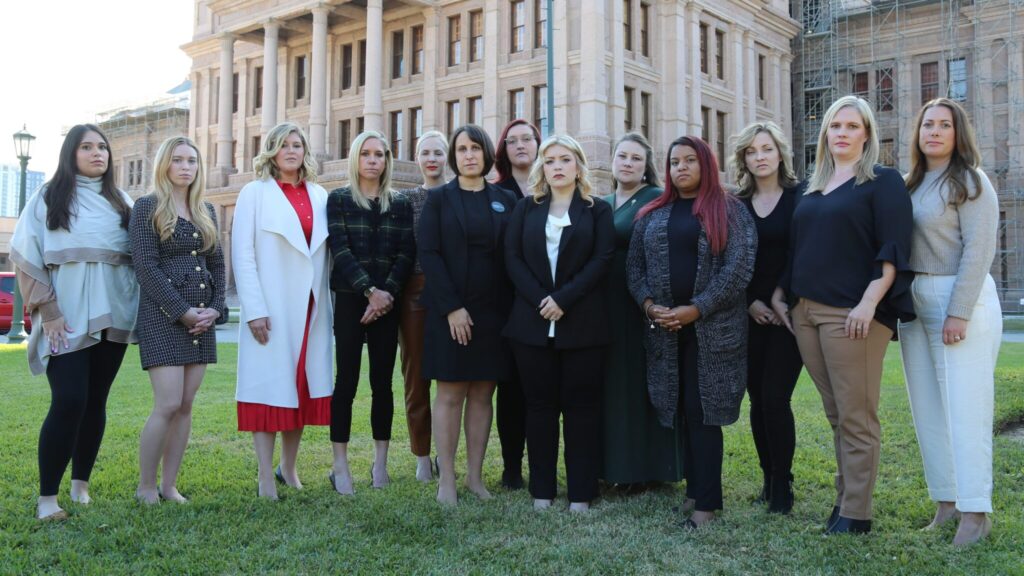
Cases: Medical Exceptions to State Abortion Bans
Explore the Center’s cases on behalf of patients denied abortion care.
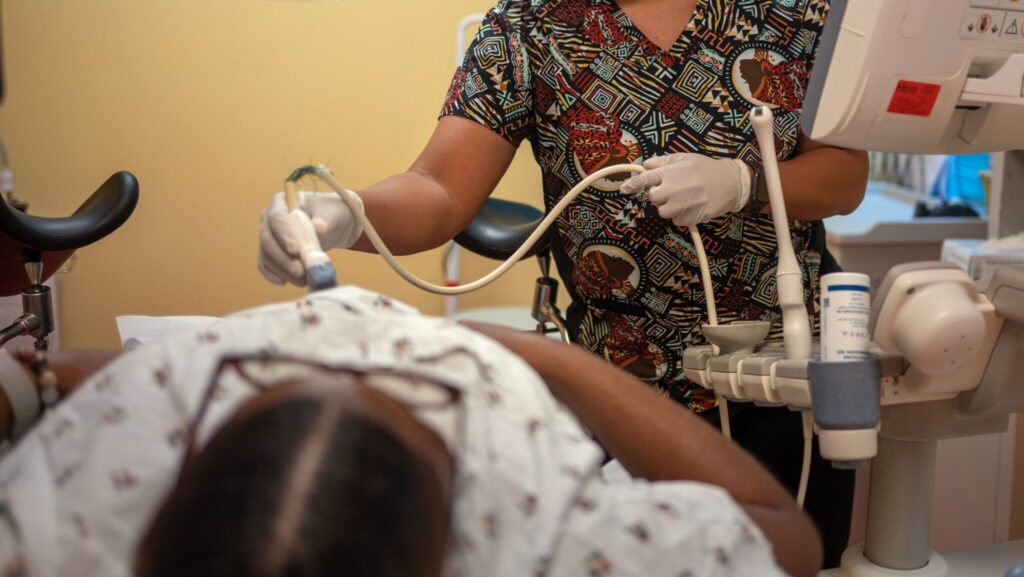
Abortion in Wanted Pregnancies
Learn how abortion care is often crucial for treating dangerous pregnancy conditions.

After Roe Fell: Abortion Laws by State
Where in the U.S. is abortion banned? Where is it protected? Find out with this interactive map.
